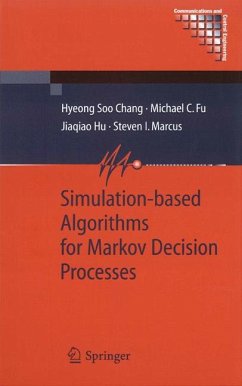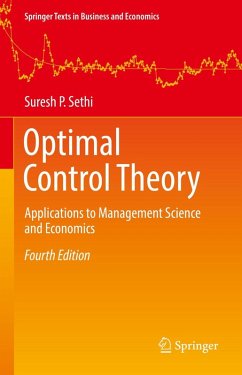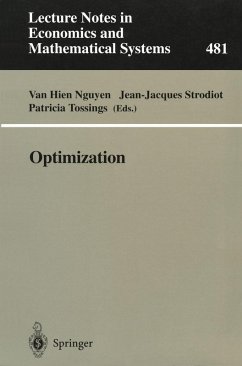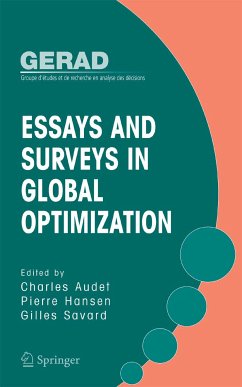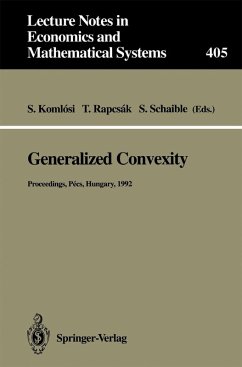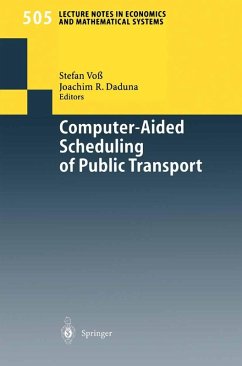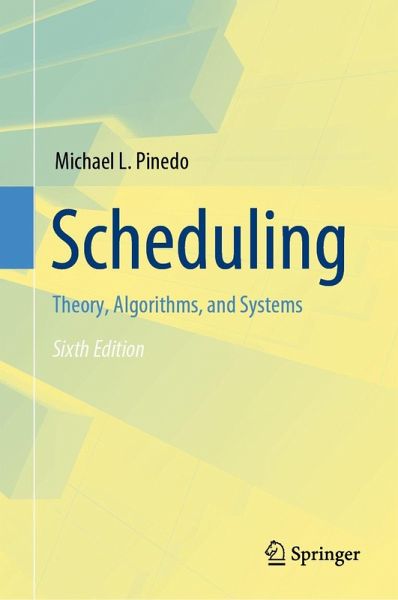
Scheduling (eBook, PDF)
Theory, Algorithms, and Systems
Versandkostenfrei!
Sofort per Download lieferbar
48,95 €
inkl. MwSt.
Weitere Ausgaben:

PAYBACK Punkte
24 °P sammeln!
The sixth edition provides expanded Discussion and Comments and References sections at the end of each chapter, creating a spotlight on practical applications of the theory presented in that chapter. New topics include rules for stochastic parallel machine scheduling and for stochastic online scheduling, models of flow shops with reentry, fixed parameter tractability, and new designs and implementations of scheduling systems.The main structure of the book as per previous edition consists of three parts. The first part focuses on deterministic scheduling and the related combinatorial problems. ...
The sixth edition provides expanded Discussion and Comments and References sections at the end of each chapter, creating a spotlight on practical applications of the theory presented in that chapter. New topics include rules for stochastic parallel machine scheduling and for stochastic online scheduling, models of flow shops with reentry, fixed parameter tractability, and new designs and implementations of scheduling systems.
The main structure of the book as per previous edition consists of three parts. The first part focuses on deterministic scheduling and the related combinatorial problems. The second part covers probabilistic scheduling models; in this part it is assumed that processing times and other problem data are random and not known in advance. The third part deals with scheduling in practice; it covers heuristics that are popular with practitioners and discusses system design and implementation issues. All three parts of this new edition have been revamped and streamlined and the references have been made up-to-date.
Theoreticians and practitioners alike will find this book of interest. Graduate students in operations management, operations research, industrial engineering, and computer science will find the book an accessible and invaluable resource. Scheduling - Theory, Algorithms, and Systems will serve as an essential reference for professionals working on scheduling problems in manufacturing, services, and other environments.
Michael L. Pinedo is the Julius Schlesinger Professor of Operations Management in the Stern School of Business at New York University.
The main structure of the book as per previous edition consists of three parts. The first part focuses on deterministic scheduling and the related combinatorial problems. The second part covers probabilistic scheduling models; in this part it is assumed that processing times and other problem data are random and not known in advance. The third part deals with scheduling in practice; it covers heuristics that are popular with practitioners and discusses system design and implementation issues. All three parts of this new edition have been revamped and streamlined and the references have been made up-to-date.
Theoreticians and practitioners alike will find this book of interest. Graduate students in operations management, operations research, industrial engineering, and computer science will find the book an accessible and invaluable resource. Scheduling - Theory, Algorithms, and Systems will serve as an essential reference for professionals working on scheduling problems in manufacturing, services, and other environments.
Michael L. Pinedo is the Julius Schlesinger Professor of Operations Management in the Stern School of Business at New York University.
Dieser Download kann aus rechtlichen Gründen nur mit Rechnungsadresse in A, B, BG, CY, CZ, D, DK, EW, E, FIN, F, GR, HR, H, IRL, I, LT, L, LR, M, NL, PL, P, R, S, SLO, SK ausgeliefert werden.




